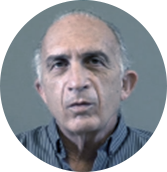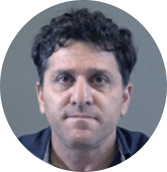Online CME course for - Heart Failure

Dr. Tuvia Ben Gal, MD

Prof. Tal Hasin, MD

Dr. Ofer Havakuk, MD

Prof. Israel Gotsman, MD

Dr. Binyamin Ben Avraham, MD

Dr. Avishay Grupper, MD

Dr. Osnat Itzhaki M.D,MSc
Heart failure (HF) is a complex medical condition that results from a decrease in the heart’s ability to supply the energy needs of the various organs of the body.
It is a complex and advanced clinical syndrome, which includes a variety of complaints from which shortness of breath with increasing effort and conditions of fluid accumulation in the presence of a disturbance in the systolic (contraction) or diastolic (relaxation) function of the heart muscle.
The prevalence of HF is estimated at 0.5% -2% of the general population, a prevalence that increases with age to the point that about 10% of the population over the age of 70 suffer from it.
According of the increase in life expectancy, the number of patients suffering from HF is expected to increase.
Despite advances in means of diagnosis and treatment, HF is still a very serious disease with the highest mortality rates from most malignancies to 50% survival for 5 years from diagnosis and particularly high hospitalization and re-hospitalization rates.
ASL in mild and moderate severity can now be treated while achieving a good quality of life and slowing down the rate of disease progression.
Treatment for heart failure began with adhering to a healthy lifestyle including proper nutrition, avoiding unhealthy habits such as smoking and increased alcohol consumption and performing orderly exercise goes through appropriate medication and continues with advanced invasive treatments ranging from pacemaker implants, various catheterization treatments and surgeries to implant equipment. (“Artificial heart”) or heart transplant.
In the last decade, there have been a number of very significant breakthroughs in the treatment of ASL patients, both in the field of medicine and in the field of equipment for left-chamber support, and at the same time, the subspecialty of heart failure has been recognized as a unique profession.
If so:
- What are the definitions and division into unique groups of heart failure?
- What are the etiological reasons and the correct ways for early diagnosis of ASL?
- What are the current treatment lines for heart failure?
- What are the recommendations for the treatment of background diseases (co-morbidities) in ASL patients?
- What is acute insufficiency and the ways to treat it?
- Who are the patients required for the treatment of mechanical equipment for heart support and what is the latest equipment
available?
We will try to answer all these questions and more in this CME course, in which the best experts and therapists in heart failure fro Israel will participate.
The course is intended for all physicians and especially for family physicians in the community, specialists in internal medicine, geriatrics, cardiology, pulmonologists, nephrologists, nutritionists, physiologists and physiotherapists and social workers or psychologists.
The main target audience is also the team that treats ASL patients in the community.
The course will be delivered in the format of online learning and will initially include about 8 lessons:
1. Introduction to Heart Failure: Definitions and Epidemiology
2. The clinical approach to a patient suffering from heart failure.
3. Medication for heart failure according to European and American guidelines.
4. Treatment of a diabetic patient who also suffers from heart failure.
5. Treatment of iron deficiency in a heart failure patient
6. Acute heart failure: diagnosis and treatment.
7. Mechanical treatment of heart failure
8. Heart Transplants: Update
The course will be delivered in the format of online learning and will initially include about 8 lessons:
- Management of ASL patient with amyloidosis
- The treatment with preparations from the SGT2 inhibitor group.
- Pulmonary hypertension and heart failure.
- Treatment of a patient suffering from HFpEF-type heart failure

Dr. Tuvia Ben Gal, MD
The scope of the final plan will be determined according to the scope of the sponsorships actually received. The course will be taught by Israelis physicians who are experts in their field in the academic management of: Dr. Tuvia Ben-Gal, specialist in internal medicine and cardiology. Director of the Cardiac Failure Unit. Rabin Medical Center, Beilinson – Hasharon. Member of the Board of Directors of the European Heart Failure Association (HFA)
Practice tests will be online, and course students who pass the tests will be eligible for the certificate. The tests will be in accordance with what is accepted in continuing education courses for physicians and as they are currently taught in iStudy courses, so that the answers have immediate feedback until the correct answer is reached and the full points are accumulated.
We believe that due to the prevalence of the disease and the enormous costs involved in its management, due to the variety of topics presented, the method of study and the fascinating innovations in the field, the joining of many professionals will be achieved.
